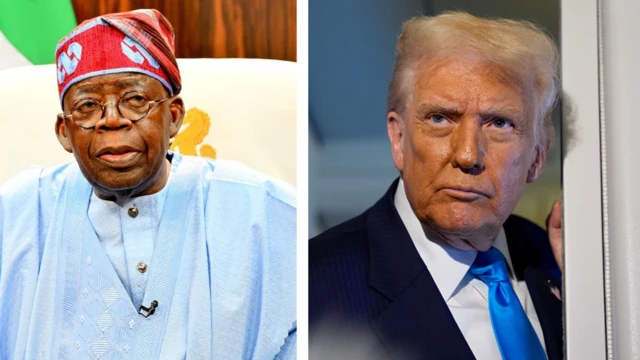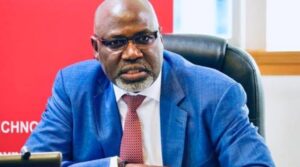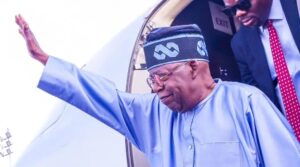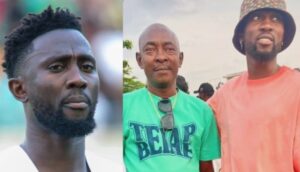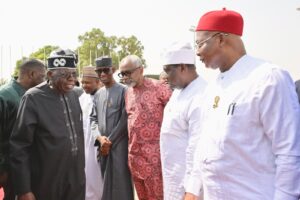On Friday, U.S. President Donald Trump designated Nigeria as a “Country of Particular Concern” (CPC), citing alleged persecution and mass killings of Christians. AYOOLUWA AYOBAMI xrays the underlying issues and federal government’s response, consistently rejecting and debunking the claims as misleading and politically motivated.
Nigeria has vehemently rejected US President Donald Trump’s latest designation of the country as a “Country of Particular Concern” (CPC) over alleged persecution of Christians, dismissing the claims as inaccurate and misleading.
The development has sparked international debate over Nigeria’s human rights record and religious freedom.
In a post on Truth Social on Friday, Trump alleged that “Christianity is facing an existential threat in Nigeria. Thousands of Christians are being killed,” blaming radical Islamists for what he described as “mass slaughter.”
He added that he had instructed Representatives Riley Moore and Tom Cole, along with the House Appropriations Committee, to investigate and report back to him.
“The United States cannot stand by while such atrocities are happening in Nigeria, and numerous other countries. We stand ready, willing, and able to save our great Christian population around the world,” Trump wrote.
The CPC designation places Nigeria alongside countries such as China, North Korea, Russia, Myanmar, and Pakistan, which the US State Department considers violators of religious freedom.
Being labeled a CPC signals that the US government believes the country is engaging in or tolerating “systematic, ongoing, and egregious violations of religious freedom” and could lead to sanctions, restrictions on foreign aid, and limitations on certain trade agreements.
Nigerian Government Pushback
The Federal Government, through a statement from the Ministry of Foreign Affairs on Saturday, November 1, reiterated that the allegations do not reflect the realities on the ground. Ministry spokesperson Kimiebi Ebienfa emphasised that Nigerians of all religious backgrounds have long lived, worked, and worshipped together peacefully.
He stated that while Nigeria welcomes international concern for human rights, Trump’s claims are “misleading and contrary to the government’s sustained efforts to promote peace and unity.”
“Nigeria remains committed to fighting terrorism, strengthening interfaith harmony, and protecting the lives and rights of all its people under the leadership of President Bola Ahmed Tinubu,” Ebienfa said.
He also noted that Nigeria would continue engaging constructively with the US government to foster better understanding of the country’s security realities and regional dynamics.
Domestic Voices Reinforce Nigeria’s Position
Minister of Information and National Orientation, Mohammed Idris, described the reports as “very misleading,” pointing out that violence in Nigeria affects Muslims, Christians, and non-religious citizens alike.
He highlighted the government’s efforts against terrorism, noting that between May 2023 and February 2025, over 13,500 terrorists were neutralised, nearly 10,000 hostages rescued, and leaders of ANSARU captured.
Idris added that Nigeria’s interfaith peace efforts and diverse leadership representation in security agencies demonstrate its commitment to harmony.
Read Also
Presidential spokesperson Bayo Onanuga had before now echoed the position, stressing that Christians are not being specifically targeted and underlining Nigeria’s history of religious coexistence.
READ ALSO: FG Slams Trump Over “Country of Concern” Designation on Nigeria
“Nigeria is home to nearly equal populations of Muslims and Christians who live side by side peacefully in most regions. Portraying the country as a place of religious genocide is unfair and inaccurate,” Onanuga said.
Even within Trump’s advisory team, some officials have questioned the CPC designation.
Massad Boulos, senior adviser on Arab and African affairs, stated following a meeting with President Tinubu at the 2025 Aqaba Process Summit in Rome, Italy, that terrorism in Nigeria “has no colour or religion.”
He noted that groups like Boko Haram and ISIS kill more Muslims than Christians and emphasised the need for cooperation to protect all civilians.
On Saturday, November 1, Former Senate Leader, Ali Ndume, called on the Federal Government to urgently engage seasoned diplomats to open constructive dialogue with the United States government and prevent further escalation of diplomatic tensions.
“We should engage the American government by presenting facts and figures. We should demand that they hear the other side of the story from the Nigerian government and the Muslim community. Muslims have been killed too. The genocide isn’t against Christians, but Nigerians generally,” he said.
Legislative Responses
International attention on Nigeria’s religious climate has grown in recent months. In early September, US Senator Ted Cruz proposed a bill aimed at protecting “persecuted” Christians in Nigeria.
On September 30, President Tinubu dismissed such allegations as baseless, asserting that the nation is built on the “faith and resilience of its people.”
In response to growing international concern, the Nigerian Senate established a 12-member ad hoc committee on October 14 to draft a comprehensive position paper addressing claims of state-backed persecution of Christians.
In a new statement on Saturday, November 1, President Bola Tinubu restated that “Nigeria stands firmly as a democracy governed by constitutional guarantees of religious liberty.”
He further maintained that “The characterisation of Nigeria as religiously intolerant does not reflect our national reality, nor does it take into consideration the consistent and sincere efforts of the government to safeguard freedom of religion and beliefs for all Nigerians.
“Religious freedom and tolerance have been a core tenet of our collective identity and shall always remain so. Nigeria opposes religious persecution and does not encourage it.
“Nigeria is a country with constitutional guarantees to protect citizens of all faiths.”
Analysts suggest that Trump’s CPC designation could strain US-Nigeria relations, even as both countries continue to seek cooperation on security, trade, and human rights initiatives.

